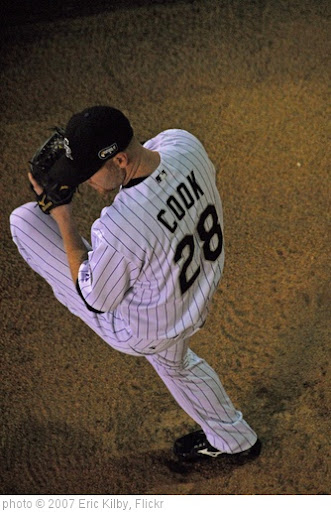 It’s probably fitting that Hiroki Kuroda pitched so well on Sunday night.
It’s probably fitting that Hiroki Kuroda pitched so well on Sunday night.
Fitting in that it was an eight-inning reminder of just how far this season has spiraled out of control, but perhaps even more a remainder of what could have been done to prevent most of this disaster before it began.
“We feel like we have some good depth there, guys capable of getting major league hitters out.”
That’s what General Manager Ben Cherington had to say when he was asked about the pitching depth of his team going into the season. After all, it was mainly a lack of pitching depth that caused what will inevitably go down as one of the worst months in Red Sox history, last September.
When pitchers like Clay Buchholz, Daisuke Matsuzaka, and John Lackey fell to injury, the organization found itself dry of any major-league ready starters who could fill in for the injured. Cherington must have watched in helpless pain as Kyle Weiland and the shell of Tim Wakefield started critical September games, only to get shelled time after time.
So, as the winter began, the key move the Red Sox had to make was acquiring pitching depth in case the same fate befell the team two years in a row.
They did acquire depth, it just turns out that none of it was very good.
Cherington signed pitchers like Aaron Cook, Mark Prior, Carlos Silva, and Vicente Padilla.
The Yankees signed Hiroki Kuroda, resigned Freddy Garcia, traded for Michael Pineda, and traded away beleaguered right-hander AJ Burnett.
Here we are five months later, and Kuroda is pitching an eight-inning gem while Josh Beckett takes the loss.
AJ Burnett is pitching like an ace in Pittsburgh. Do you hear any Yankee fans complaining?
Brian Cashman saw something that clearly was not working and took care of the situation.
How refreshing does that sound?
It’s what the Boston front office has been refusing to do for about a month now.
Obviously, going into the season, expectations were high for aces Josh Beckett and Jon Lester. Especially after the way the 2011 season ended, many expected the two horses of Boston’s rotation to return to dominance and make right what went so wrong last September.
No one could have expected them to be this bad, but Cherington should have been prepared for the worst. This is the worst. Sure, he can say there was plenty of pitching depth in the organization. Technically, he wasn’t lying. The Red Sox had plenty of pitchers between the major league club and the minor leagues. The problem is that most of them just aren’t very good right now.
Hindsight is 20/20 of course, but throughout the entire offseason, the most obvious move for Boston was to sign a reliable innings eater to fill out what was an extremely shaky rotation on paper. Instead, Cherington signed reclamation project after reclamation project, hoping one of them would pan out.
Vicente Padilla certainly has panned out, but not as a starter, and that’s not helping the problem.
The Red Sox didn’t appear to have the type of money required to sign Hiroki Kuroda. He was asking for a one year deal higher than the six million Boston had to spend. Saying that signing Kuroda would have solved all of Boston’s problems this season is foolish and simply not true. But saying that Kuroda would have stabilized a rotation that was built on a house of cards from Opening Day, is a fact.
The Red Sox wouldn’t have had to waste their time trying to convert the most talented reliever on their roster, Daniel Bard, into a starter, consequently putting his entire career in danger by messing with his mechanics. Where is Bard now? Stranded in Triple-A Pawtucket, where is ERA is still floating above 7.00.
There’s no point in speculating all the possible moves Cherington could have made, because we’ll never know exactly who was available, and exactly what amount of money he had to spend. That being said, there were certainly serviceable starters to be had, and he did not find them.
Stocking a system with reclamation projects and overpaid veterans isn’t pitching depth. In fact, if this season has proved anything, it’s that the strategy Cherington used left the Red Sox more shallow than they would have been if he had done nothing at all.
